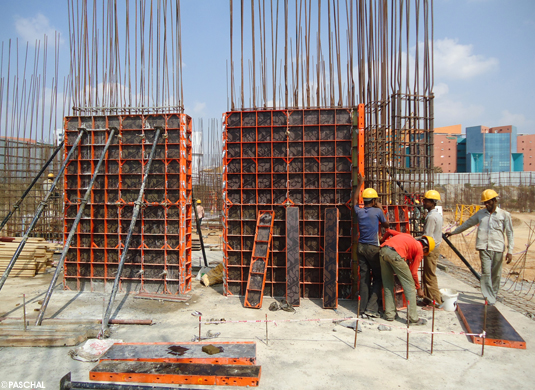Anthracite coal is a high-grade coal with a high carbon content and minimal impurities, making it a preferred fuel for various industrial applications. It is used in steelmaking, power generation, and as a home heating fuel. Understanding the price trends of anthracite coal is essential for industries, traders, and consumers to make informed decisions. This article provides a comprehensive analysis of anthracite coal price, examining the factors influencing these trends, regional variations, and future market forecasts.
Market Overview
Anthracite coal is known for its high calorific value, low sulfur content, and high carbon percentage. These properties make it more efficient and cleaner than other types of coal, such as bituminous or lignite. The global market for anthracite coal is influenced by several factors, including mining costs, transportation logistics, demand from key industries, and regulatory policies.
Request a free sample copy in PDF: https://www.expertmarketresearch.com/price-forecast/anthracite-coal-price-forecast/requestsample
Current Anthracite Coal Price Trends
As of mid-2024, the price of anthracite coal has shown variability due to various market dynamics. Several key factors contribute to these price trends:
- Mining Costs: The cost of extracting anthracite coal varies depending on the depth of the coal seam, the mining technology used, and labor costs. Fluctuations in these factors directly impact the production cost and market price of anthracite coal.
- Transportation Logistics: Transportation costs play a significant role in determining the final price of anthracite coal. The distance from mining sites to end-users, the availability of transportation infrastructure, and fuel costs for transportation can influence prices.
- Supply and Demand Dynamics: The balance between supply and demand significantly affects anthracite coal prices. High demand from steelmaking and power generation industries, coupled with limited supply, can drive prices up. Conversely, an oversupply can lead to price reductions.
- Global Trade Policies: Trade policies, including tariffs and import/export restrictions, can significantly affect the price of anthracite coal. Changes in trade agreements or geopolitical tensions can disrupt supply chains, leading to price volatility.
- Environmental Regulations: Stricter environmental regulations on coal mining and usage can increase production costs, thereby influencing prices. Policies promoting cleaner energy sources can also impact demand and prices for anthracite coal.
Read Full Report With Table Of Contents – https://www.expertmarketresearch.com/price-forecast/anthracite-coal-price-forecast
Regional Price Variations
The price of anthracite coal varies across different regions due to local production capacities, demand levels, and regulatory environments. Here is a regional analysis of anthracite coal prices:
- North America: Prices are influenced by mining costs, transportation logistics, and demand from the steel and power industries. The presence of large coal reserves and efficient mining technologies also affects pricing dynamics.
- Europe: The region’s stringent environmental regulations and high demand from the steel industry contribute to these prices. Countries like Germany, the UK, and Poland are significant markets for anthracite coal.
- Asia-Pacific: The growing industrialization and increasing demand for steel and power drive the market. Production costs are generally lower due to less stringent regulations and lower labor costs.
- Latin America: The region’s growing industrial sector and increasing demand for energy and steel are key factors influencing prices. Local production capacities also play a role in determining pricing.
- Middle East and Africa: The region’s developing industrial sector and increasing demand for energy contribute to the market dynamics. Import dependencies in some countries can also lead to price fluctuations.
Factors Influencing Anthracite Coal Prices
Several factors play a crucial role in determining the prices of anthracite coal:
- Mining and Extraction Costs: The costs associated with mining and extracting anthracite coal significantly impact its price. These costs include labor, equipment, and maintenance expenses. Deep mining and the need for advanced technology can drive up costs.
- Transportation Costs: The logistics of transporting anthracite coal from mining sites to end-users influence the final price. Factors such as fuel costs, transportation infrastructure, and distance can affect these costs.
- Supply and Demand Dynamics: The balance between supply and demand in the market determines prices. High demand from industries such as steelmaking and power generation can drive prices up, while an oversupply can lead to price reductions.
- Technological Advancements: Innovations in mining and transportation technologies can reduce production and logistics costs, potentially lowering prices. Improved efficiency and productivity in mining operations also contribute to cost savings.
- Environmental Regulations: Stricter environmental regulations on coal mining and usage can increase production costs, influencing prices. Policies promoting cleaner energy sources can also impact demand and prices for anthracite coal.
- Economic Conditions: Global and regional economic conditions influence the demand for anthracite coal. Economic downturns can lead to reduced demand and lower prices, while economic growth can drive demand and increase prices.
Applications of Anthracite Coal
Understanding the diverse applications of anthracite coal can provide insights into the factors driving its demand and, consequently, its price. Some of the primary applications include:
- Steelmaking: Anthracite coal is used as a carbon additive in steelmaking. The demand from the steel industry significantly drives the market.
- Power Generation: Anthracite coal is used in power plants to generate electricity. The demand from the energy sector impacts market dynamics.
- Home Heating: Anthracite coal is used as a heating fuel in residential areas. The demand for home heating influences market prices.
- Industrial Processes: Anthracite coal is used in various industrial processes, including metal processing and chemical production. The demand from the industrial sector impacts the market.
Future Price Forecast
The future outlook for anthracite coal prices is influenced by various factors, including market demand, mining costs, technological advancements, and regulatory changes. Here are some key trends and predictions for the future:
- Stable Mining Costs: If mining and extraction costs remain stable, it is likely that the price of anthracite coal will also stabilize. However, any significant changes in mining costs or supply chain disruptions could impact prices.
- Growing Demand from End-Use Industries: The demand for anthracite coal from various industries, such as steelmaking, power generation, and home heating, is expected to continue growing. This increasing demand will likely support price stability or even lead to price increases.
- Technological Innovations: Advances in mining technology and transportation logistics could drive market growth. Innovations that enhance production efficiency or create new market opportunities may help stabilize or reduce prices.
- Environmental and Regulatory Factors: Stricter environmental regulations and sustainability initiatives may impact production processes and costs. Compliance with these regulations could lead to increased production costs, potentially driving prices up.
- Economic Recovery: The global economic recovery from the COVID-19 pandemic is expected to boost demand for industrial and energy products containing anthracite coal. This increased demand may support higher prices in the short to medium term.
- Regional Market Dynamics: Regional differences in production capacity, demand, and regulatory environments will continue to influence anthracite coal prices. Markets with strong demand and limited supply may experience higher prices, while regions with surplus production capacity may see more stable or lower prices.
Conclusion
The anthracite coal market is influenced by a complex interplay of factors, including mining costs, transportation logistics, demand from end-use industries, regulatory changes, and economic conditions.
Looking ahead, the future price of anthracite coal is expected to be shaped by stable mining costs, growing demand from various industries, technological innovations, and regulatory factors. Businesses involved in the production, distribution, or utilization of anthracite coal should closely monitor these trends to make informed decisions and optimize their operations.
In summary, while the anthracite coal market faces several challenges and uncertainties, it also presents opportunities for growth and innovation. By understanding the key factors influencing prices and staying abreast of market developments, businesses can navigate the dynamic landscape and achieve long-term success.
About Us
Acquire unparalleled access to critical industry insights with our comprehensive market research reports, meticulously prepared by a team of seasoned experts. These reports are designed to equip decision-makers with an in-depth understanding of prevailing market trends, competitive landscapes, and growth opportunities.
Our high-quality, data-driven analysis provides the essential framework for organisations seeking to make informed and strategic decisions in an increasingly complex and rapidly evolving business environment. By investing in our market research reports, you can ensure your organisation remains agile, proactive, and poised for success in today’s competitive market.
Don’t miss the opportunity to elevate your business intelligence and strengthen your strategic planning. Secure your organisation’s future success by acquiring one of our Expert Market Research reports today.
Media Contact:
Company Name: Claight Corporation
Contact Person: Leo Frank, Business Consultant
Email: [email protected]
Toll Free Number: US +1–415–325–5166 | UK +44–702–402–5790
Address: 30 North Gould Street, Sheridan, WY 82801, USA
Website: www.expertmarketresearch.com
















